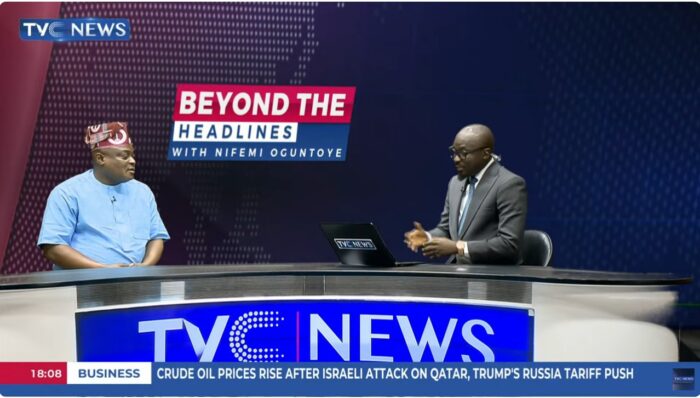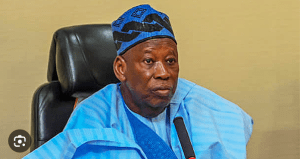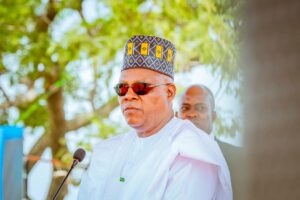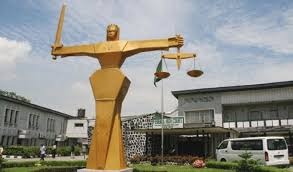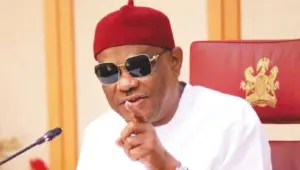The Speaker of the Lagos State House of Assembly, Mudashiru Ajayi Obasa, has reflected on his legislative journey, the importance of citizen engagement, and his political future during a special interview with Nifemi Oguntoye on #BeyondTheHeadlines marking the 10th edition of the Constituency Stakeholders’ Meeting.
The annual gathering, which was first introduced by Obasa in 2015, has grown into a staple of Lagos’ political calendar, allowing constituents across all 40 constituencies to interact directly with their elected lawmakers. This year’s theme focused on the “Gains of the Renewed Hope Agenda.”
Speaking during the interview, Obasa stressed that representation remains the most significant duty of legislators, above lawmaking and oversight. “Representation is about creating opportunities for interaction and engagement. It allows citizens to understand government and gives us lawmakers the chance to provide feedback. It is not limited to supporters alone, but also includes critics, the sick, prisoners—everybody,” he said.
He explained that holding the meeting simultaneously across constituencies was deliberate to ensure inclusiveness and consistency. “After ten years, people now look forward to it. Outcomes are documented and submitted to the executive for consideration in annual budgets,” the Speaker noted.
Obasa addressed public debates over constituency projects, clarifying that lawmakers in Lagos do not execute projects directly. “Our job is not to construct roads or buildings. We listen to the people, aggregate their needs, and forward them to the executive. Lawmakers only influence projects for their communities but do not implement them,” he emphasized.
Asked whether Lagosians have felt the benefits of President Bola Tinubu’s Renewed Hope Agenda at the grassroots, Obasa pointed to resolutions of the Assembly on security, property disputes, and community projects. He praised the state executive for responding swiftly to many of these interventions.

Reflecting on his dramatic removal and reinstatement as Speaker earlier this year, Obasa dismissed speculation of lingering divisions. “Even in a family, misunderstandings happen. My colleagues remain loyal and dedicated. The trust has always been there and is still there. We have healed and moved on,” he said.
Read Also
Commenting on the 2023 elections where the Labour Party won Lagos in the presidential poll, Obasa described the outcome as a “wake-up call” for the ruling party. “We analysed the result and identified areas to address. Factors such as demographics, religion, and ethnicity played a role. But we have been working to reconnect with voters, and such an outcome will not repeat itself,” he assured.
On his political future, Obasa was cautious, stressing loyalty to his party. “In politics, ambition is natural, but as members of a party, we must respect leadership decisions. Whether one becomes governor, senator, or remains in the Assembly is determined through consultation,” he explained.
Asked directly if he was eyeing the Lagos governorship in 2027, Obasa neither confirmed nor denied but hinted at broader ambitions. “There is life ahead. Let’s wait and see,” he remarked.
Defending President Tinubu’s reforms, Obasa compared them to treating an illness that requires time to heal. “People say nothing has been done, but that is unfair. Roads, schools, and infrastructure are ongoing. Yes, there are pains, but governance is a gradual process. We are moving forward,” he said, adding that Tinubu was well aware of Nigerians’ struggles and had launched initiatives such as market funds, farmers’ money, and student loans to cushion hardships.
Looking ahead, Obasa pledged to focus on infrastructure, security, poverty eradication, and youth self-employment during the remaining two years of his tenure. He urged young Nigerians to embrace hard work, citing his own humble beginnings.
He also offered a playful explanation of the “Obasa One” inscription on his cap: “The zero is Obasa, the one is all of us together as one.”

